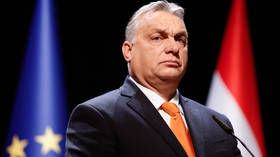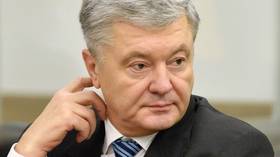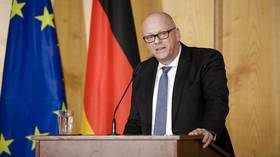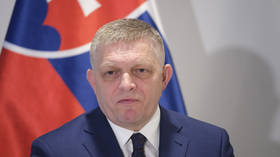The EU-Gazprom war
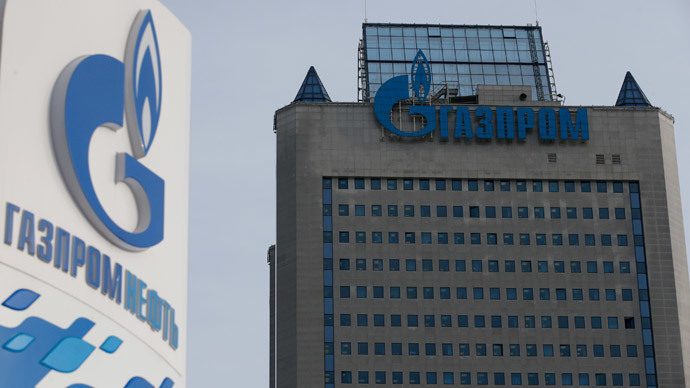
The European Commission (EC) is slapping anti-trust charges against Russia’s Gazprom under the pretext the energy giant is blocking competition in Central and Eastern Europe.
This is yet another graphic example of the extreme politicization involving what should have been Europe’s energy policy. There is no such policy – even after virtually a decade of “discussions” inside that glassy Kafkaesque Brussels nightmare, the Berlaymont.
The EC investigation started in September 2012. Why did it take the Berlaymont bureaucrats so long to reach an initial verdict? Simple; it’s always been about politics – not energy.
One just needs to look at the nations involved in pushing against Gazprom’s supposedly monopolistic practices: Lithuania, Estonia, Bulgaria, Czech Republic, Hungary, Latvia, Slovakia and Poland. With the exception of Hungary, all these are, or have been forced to act, anti-Russian.
READ MORE: EU charges Gazprom with 'abusing' market position in Central & Eastern Europe
The argument that Gazprom is “dominant” and prevents competition is bogus; there’s no competition because there are no other viable energy sources for the European market. The Europeans should blame the US instead, for keeping a nasty package of sanctions on Iran for so long. But of course EU Competition Commissioner Margrethe Vestager would never do that.
If Gazprom is finally ruled guilty, fines may be as steep as 10 percent of overall sales to Europe – which were the ruble equivalent of €93 billion ($100 billion) in 2013, according to the latest data.
Vestager has been busy lately. She already formally charged Google with abusing its also “dominant” position. Yet another case of no European company able to compete with Google. It will be fascinating to watch the reaction in US business circles. Bets can be made on plenty of outrage in the Google case contrasting with plenty of rejoicing in the Gazprom case.
Got sanctions, no pumping
Gazprom supplies roughly a third of the EU's gas; half of the gas transits Ukraine. As even a low-level IMF clerk knows, Kiev is not exactly keen on paying its gas bills. So Gazprom had to go to great lengths to try to get the fees due – even suspending the gas flow on occasion as Kiev would be rerouting gas meant for the EU for its own internal needs.
Anyway failed state Ukraine, for Gazprom, is finished as a transit route. Gazprom CEO Aleksey Miller has already announced that will end by 2019. By then, all the action will be around Turkish Stream. Turkish Stream is the successor of South Stream, which will also be built underwater, in the Black Sea, thus skipping Ukraine. South Stream was cancelled because of – what else – the EU and the EC’s endless politicized U-turns.
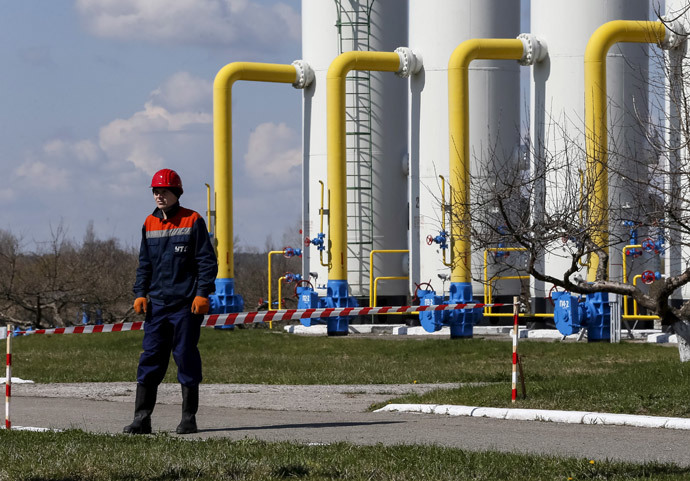
The EU, as usual, lost badly; member-nations now will have to pay to connect with Turkey, and pay extra for the necessary infrastructure to receive the gas. Gazprom was ready to deliver the gas to their doorsteps.
And exactly as the EC – true to character - shoots itself in the foot again, Miller is in Athens, with the distinct possibility of Gazprom landing a ‘Pipelineistan’ deal incorporating Greece to Turkish Stream while paying a few billion dollars in advance to the austerity-ravaged EU nation.
Once again it’s crucial to remember that all this drama is taking place as a consequence of Iranian energy being blocked from the European market by US sanctions – plus unrelenting US pressure over EU minions.
Nabucco – a previous, never-ending ‘Pipelineistan’ opera – is all but dead. The new salvation would be a competitor to Turkish Stream with gas starting to flow also in 2019 not from Russia but from the Shah Deniz II fields in Azerbaijan, and later on, in the most optimistic hypothesis of sanctions being lifted as soon as possible, also Iran.
Gas from Azerbaijan, though, would be enough only for Bulgaria and Greece. That’s far from what is needed. The EU badly needs Iran.
Here’s something to watch carefully; a key platform to test Washington’s true desire to go for a final nuclear deal. Washington knows that Brussels is absolutely desperate for Iranian energy – but for that to happen all sanctions must be lifted immediately, as well as hasty negotiations leading to a tsunami of investment in the Iranian energy industry. For all this to be accomplished it will take not months, but years.
Meanwhile, Gazprom will be able to attack two crucial markets at once; Europe through Turkish Stream, and Asia through its massive contracts with China. The bottom line is that Gazprom remains the only certified option for most of the EU’s energy needs in the foreseeable future.
Tell that to the certified own goal specialist gang in Brussels.
Pepe Escobar’s latest book is Empire of Chaos.
Follow him on Facebook.
MORE:
The statements, views and opinions expressed in this column are solely those of the author and do not necessarily represent those of RT.
The statements, views and opinions expressed in this column are solely those of the author and do not necessarily represent those of RT.




